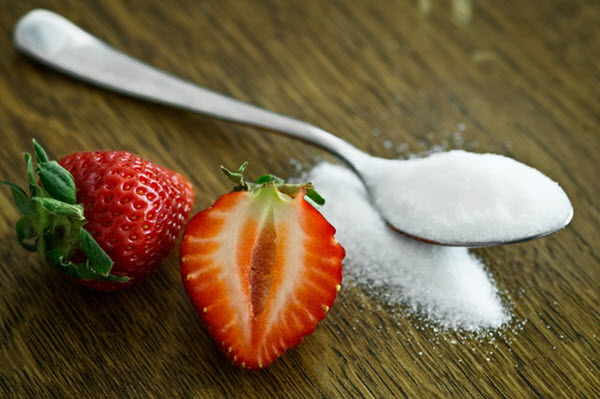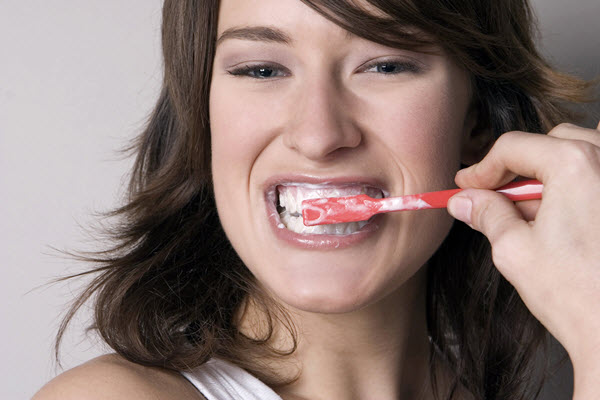9 Dental Health Myths That You Should Stop Believing Now
By Leslie Wyman
September 12, 2018 • Fact checked by Dumb Little Man

For you to keep your overall health, experts say that you shouldn’t neglect your oral health. It’s because a healthy set of teeth is one of the indicators of your well-being. Failure to take care of it is the same as letting your physical health down the drain.
Thus, it’s not surprising that a lot of people today consider their oral health as one of their priorities for having a healthy lifestyle. However, there are still some folks out there who believe in dental myths. Instead of making their teeth healthy, wrong beliefs cause their oral health to deteriorate.
To clear things, below is a list of dental myths and the truth behind them.
Myth #1: The More Sugar You Eat, The Worse It is For Your Teeth

Yes, sugar can cause cavities on your teeth. However, having tooth cavities is not much about the amount of sugar you consume, but how long it stays in your mouth.
Sugar creates acid that wears away the enamel of your tooth.
So, if sugar stays longer in your mouth, the more it produces acid and the more chances your teeth will have cavities. Thus, after eating sugary food, you should brush your teeth or rinse your mouth with water or mouthwash.
Myth #2: You Should Only Blame Sugar
It’s not true that sugar is the only bad guy that causes tooth cavity. Starchy foods, alcohol, citrus fruits, and sugar-free carbonated drinks can also cause damage to your precious teeth.
So, if you’re indeed prioritizing your oral health, you should quit eating those foods and start eating fruits and vegetables that are abundant in fiber. Fiber-rich foods can generate the flow of saliva that restores the mineral in your teeth.
Myth #3: Chewing Sugar-Free Gum is as Good as Brushing
Some people believe that chewing a sugarless gum does well as brushing your teeth. If science backs this argument, children would surely be happy. However, it’s not accurate.
Although a sugar-free gum that contains xylitol can help protect your teeth, it still won’t replace your toothbrush in providing yourself with good oral hygiene.
You still need to see to it that you brush your teeth thrice a day to make your teeth pearly clean and to clear away the bad breath.
Myth #4: Flossing is Unnecessary
Some folks out there consider flossing unnecessary and a waste of time. They argue that brushing is enough. Unfortunately, experts say that brushing your teeth is not sufficient. You should include flossing in your oral health regimen.
It’s because there are parts in your mouth that your toothbrush may find hard to reach. That would amount to 33 percent of your mouth uncleaned. To achieve optimal oral health, make it a habit to floss your teeth.
Myth #5: Hard Brushing Will Make Your Teeth Cleaner

It’s not true that brushing your teeth hard can make it cleaner. In fact, hard brushing can cause bleeding and damage to your teeth and gums. It can chip away the tooth enamel that serves as a shield from bacteria.
So, it will do you better if you brush your teeth gently. If your gums and teeth are sensitive, you should use a soft-bristled toothbrush when brushing.
Always keep in mind that you should brush your teeth in a 45-degree angle to your gums. Don’t forget to work the toothbrush inside and outside the parts of your teeth. Also, clean your tongue as well as your gums.
Myth #6: Pearly White Teeth is Healthy
It’s a common misconception for many that a set of white teeth is healthy. The thing is that having a set of white teeth is not a standard for optimal oral health. That’s because humans don’t have the same natural color for their teeth.
An individual can have a whiter set of teeth than another, but it doesn’t mean that the person has better oral hygiene. Fresh breath and zero cavity are the primary indications that a person has healthy teeth.
Myth #7: Aspirin is Better at Soothing Toothache
There’s truth that aspirin can relieve your toothache temporarily if the source of pain is from the gum area. However, if the pain comes from the inside of the tooth, aspirin won’t be that effective. It’s because this medicine can’t infiltrate the inside of the teeth to soothe the affected nerve.
It’s also wrong to take too much aspirin to alleviate your toothache as it burns the gums and can cause further complication.
Myth #8: Tooth Bleaching is Bad
There was a time when tooth bleaching is terrible for the teeth. Before 1990, dentists apply acidic ingredients and highly-concentrated whitening gel in the bleaching process that cause damage to the teeth. These ingredients harm the teeth and prompt the enamel to crumble.
Today, however, dentists only apply pH neutral solution in bleaching. A pH neutral solution gives you no worries as it keeps your white teeth while keeping it unharmed at the same time.
Myth #9: A Dentist is Unnecessary When You Don’t Have a Toothache
People who fail to visit a dentist pay the price when it comes to their oral health. Even if you don’t have a toothache, visiting a dentist is a must for the prevention of oral health diseases.
You should keep in mind that you can’t see the progress of oral health problems immediately at the beginning. For instance, you won’t feel any pain when the cavities are just starting to form on the tooth enamel. It’s also true with gum disease.
For you to prevent these oral health problems from happening, you should regularly visit a dentist to check your teeth. Dental experts can give you an oral check-up to improve your oral health.
See Also: Dental Care for Children With Special Needs
Takeaway
There are a lot of proper ways to keep your teeth healthy, but there are also dental myths you have to be aware of. In improving your teeth, it’s essential that you’re cautious about those misconceptions.
Leslie Wyman
Leslie Wyman is an oral health blogger. She loves to give tips on how to improve oral health and dietary guide to prevent tooth decay. Leslie browses dental sites like Markham Dental to shore up her knowledge about oral health.

